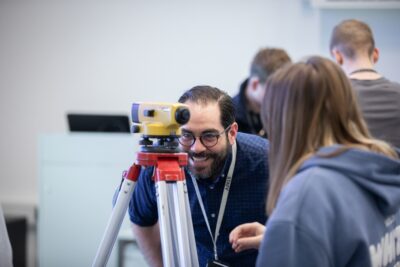Designed by both the Government and businesses, T Levels make sure you complete your studies with not just a qualification but with all the current skills and knowledge employers need to help you start your career! This two-year qualification for 16-18 year olds, combines industry experience with classroom study – think of it as a mixture between apprenticeships and BTECs.
What you need to know
- Like most 16 – 18 qualifications, T Levels are completely free
- T Levels are a two-year qualification and during that time you will spend most of your time working in the classroom but will also complete a 45-day placement in a local business
- A T Level Distinction* qualification is worth the same amount of UCAS points as 3 A Levels at A* or a BTEC Level 3 qualification at D*D*D*. This means you still have the option to progress your studies at university or you can enter employment with all of the skills and knowledge you need to get started
- T Level students spend 80% of the course in their learning environment, gaining the skills that employers need. The other 20% is a meaningful industry placement, where they put these skills into action

Chesterfield College Open Day
Thinking about studying at college? Come along to one of our Open Evenings to learn more about the many courses and apprenticeships we have to offer.



